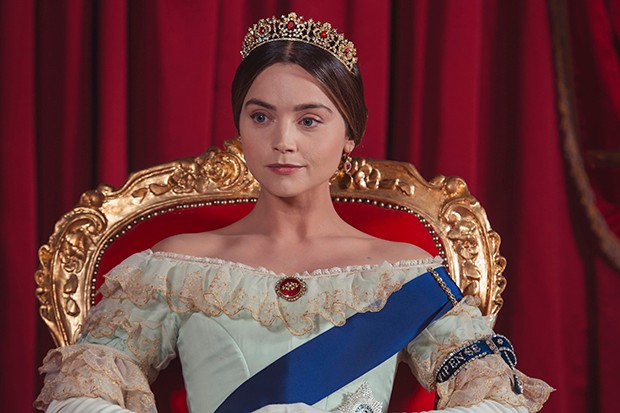After a recent spate of lavish historical dramas, it seems the public is lapping up the good old days. Delphie Bond and Alex Bray argue that our romanticised relationship with bygone eras hides a darker truth.
From The Crown to Downtown Abbey, we appear to be looking for a dreamy, nostalgic view of the past for our on-screen down time. This would all be well and good if our idyllic ideas of yesteryear were as dramas such as ‘Victoria’ suggest. Instead, sumptuous period pieces invite a nostalgia, or even a mourning for a world that never was. With the rise of nationalism tinged with far right ideology in the UK at present, surely we need to educate ourselves on what really happened under our glorious empire? It may not appease a Sunday night audience, but surely the dark side of colonial rule, the invisible victims that the empire was built upon, finally need some recognition?
Britain has many things to take pride in, but colonialism is not one of them. It is time we stop thinking about imperialism as an economic mission, and start seeing it as a dark light which drained colonies of their resources, culture and livelihood. It is hard to imagine Jenna Coleman (the title character of ITV’s Victoria) as the monarch behind The Jallianwala Bagh Massacre where British soldiers killed over 1,000 indigenous civilians or the Indian famines. Arguably, television has a duty to debunk our Sunday night fantasies because our country is still rife with inequalities and prejudices that the Empire was built on.
However, perhaps it isn‘t just on screen where our morally bankrupt history has been glossed over with ideals of jewels and crowns; maybe it is closer to home. On Woodhouse Moor in Hyde Park Leeds, Queen Victoria reigns over the park in all her colonial grandeur. The monument, made of bronze and stone and boasting several symbols of the former British empire, is said to celebrate a time in which Britain was quite literally on top of the world, having colonised a quarter of the entire surface of the globe. In actuality, the statue neglects to inform us of the ex-colonised people who were abused by the British government, and who laid the foundations for, and continued to be the facilitators of, the success of the British empire – similar to how period dramas simply overlook any bloodshed.
This whitewashing of Britain’s imperial past, and Britain’s failure to accept responsibility for violence caused by its hawkish and neglectful foreign policy as shown through statues such as this one, has led to calls for the demolition of such monuments. The counter argument to this is strong – if we demolish them are we then completely destroying memory? I’d say no, we are not. And I’d say, let’s not demolish, instead educate our society on the atrocities Queen Victoria ruled over. We should look at the statue of Queen Victoria as a way of confronting our brutal imperial past and look at period dramas to expose the myths that our society is founded upon.
In our world, where Windrush immigrants are being sent back to ‘homes’ they have never been too, and legitimate political parties are campaigning for a ‘white Britain again’, it signals that we urgently need to face our history more head on. Sumptuous costume dramas are perhaps not the space for the brutal awakening that we need, and perhaps the demolition of Queen Victoria is not the answer. However, surely there are enough soporific Sunday night dramas that we could cut just one and learn about what really happened under Queen Victoria’s rule and what is happening today. And perhaps, just teach what really happened?
Image Credit: Netflix

